Christopher G. Langton (a former researcher into artificial life) once stated that biology is “infinitely richer in its potential” than physics. Biologist Fransico Verela “disputed the typical physicist who believes that he or she is dealing with fundamental reality”. In turn, physicist Paul Davies said that “biologists are strongly and evangelically reductionistic”…. And these are only three examples among many — and all in a single book.

The following is a continuation of my previous essay, ‘Scientists at War With Scientists: Insults, Politics, and Darwinism’. That’s the case because it relies on the words of some of the same scientists in the very same book — John Brockman’s The Third Culture: Beyond the Scientific Revolution. It also covers fairly similar themes.
That said, there is one main difference.
In the last essay I focussed on scientists criticising (sometimes insulting) other scientists. In this essay the focus is mainly on the scientists of one discipline criticising (sometimes insulting) other scientific disciplines. Indeed, when it comes to at least some of the quotes featured in the following, it all comes across as being somewhat juvenile and tribal.
Of course it’s perfectly acceptable, correct and somewhat obvious to highlight the differences between biology and physics.
But what about the potshots and point-scoring that occurred between biologists and physicists in Brockman’s The Third Culture — and, indeed, which has occurred in many other places and at many other times?
So let’s begin with Christopher Langton.
Christopher G. Langton vs Physics
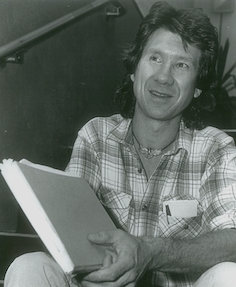
Take Christopher G. Langton’s words in the following passage:
“Biology is consequently much harder than physics but also infinitely richer in its potential, not just for understanding life and its history but for understanding the universe and its future. The past belongs to physics, but the future belongs to biology.”
[Langton wasn’t a biologist. He was a computer scientist. However, his main interest was in biology and what he called “artificial life”.]
What does it mean to argue that some scientific discipline is “harder” than another? Did Christopher Langton simply mean that those scientists who didn’t have his own experiences and knowledge would have found it difficult to be experts on what he was an expert on and to state the things he stated?
Sure. But wouldn’t that true (almost) by definition?
And why couldn’t Langton have been modest enough to accept that there are many different scientific ways of “understanding the universe”? Indeed what tortuous — and perhaps egocentric — chains of reasoning must such biologists have indulged in (if they did so at all) in order to come to the conclusion that there’s only one royal road — i.e., biology! — to understanding everything?
In any case, perhaps biology is “harder than physics”. However, it would still need to be spelt out what exactly that means.
For a start, it can be assumed that at least some physicists would argue that physics is much harder than biology. (Say, for argument’s sake, because of its use of mathematics, experiments, the importance of theory, etc.)
So what about biology being “infinitely richer in its potential” than physics?
What on earth does that mean?
Langton told us what that means… Well, at least he told us where we get that infinite richness from (i.e., from biology), but not really how and why that is so.
According to Langton, biology is infinitely richer than physics in terms of “understanding life and its history”. What’s more, biology is infinitely richer when it comes to “understanding the universe and its future” too.
One can guess as to what many physicists would say to all that. (It can be acknowledged that at least some physicists would agree with Langton!)
For example, if fundamental physics underpins biology and chemistry (as has been argued by many physicists since Paul Dirac and was still argued by theoretical physicist Steven Weinberg up until his death in 2021 — see here), then how can biology trump physics? Then again, saying that physics underpins chemistry, and that chemistry underpins (in terms of laws, etc.) biology (in either a loose or strong transitive sense) has none of the connotations which go along with Langton’s rhetorical words. That is, physics can underpin chemistry and biology and yet a physicist can still allow chemistry and biology to be (fully?) autonomous and even to be (to use Langton’s own words) “infinitely richer” than physics! (The American physicist Murray Gell-Mann took this position — if not the latter clause. See my ‘Murray Gell-Mann on Scientific Reductionism’ and ‘Murray Gell-Mann on Complexity’.)
In addition, since physics itself (obviously) underpins physical cosmology, then what about Langton’s words, “understanding the universe and its future”?
Surely this is the domain of a physical cosmology which is steeped in both experimental physics and theoretical physics…
Except that I’m playing Langton’s silly and childish game here!
There’s simply no point in playing physics off against biology in these respects for the obvious reason that both disciplines are doing different things in different ways.
Now we’ll also have Fracisco Varela taking potshots at physicists.
Biologist Fracisco Varela vs (Materialist) Physicists
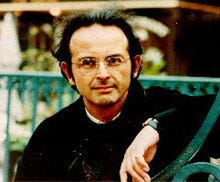
The Chilean biologist Francisco Varela (1946–2001) stated the following:
“I’d go one step further and dispute the typical physicist who believes that he or she is dealing with fundamental reality. A physicists will say that we’re made of atoms. Such statements, while true, are irrelevant.”
Have many — or even any — physicists really said such things? And even if they have, in what precise contexts have they done so? What’s more, is the fact that we’re made of atoms really “irrelevant”?
Again, it all depends on the precise context.
Perhaps Fransico Verela had in mind the following very-often-quoted and infamous passage from Francis Crick’s 1994 book, The Astonishing Hypothesis: The Scientific Search for the Soul:
“‘You’, your joys and your sorrows, your memories and your ambitions, your sense of personal identity and free will, are in fact no more than the behavior of a vast assembly of nerve cells and their associated molecules.”
Yet even here it can be argued that Francis Crick was being rhetorical simply in order to gain an audience. In other words, it’s fairly easy to argue that Crick was being wilfully provocative. At the same time, he may also have been offering at least some truth.
In any case, Varela then placed his position within a larger philosophical context. He continued:
“We have to abandon the enormous deadweight of the materialism of the Western tradition, and turn to a more planetary way of thinking.”
That last clause almost seems like a non sequitur.
Firstly, what is “planetary thinking”?
Secondly, why does planetary thinking (whatever it is) automatically follow from rejecting materialism?
Indeed, why can’t we have both materialism and planetary thinking at one and the same time?
If by the words “planetary thinking” Varela meant thinking that was in tune with his own political and moral views, then perhaps there’s no immediate reason why materialists can’t also embrace Verela’s politics… Unless, that is, Varela also believed that materialism — by definition! — is tied to a specific kind of politics and a specific and broader (philosophical) world view. However, if one looks at the history of materialism, one can quickly see that it has gone alongside all sorts of different political positions and other philosophical stances.
Ironically, Paul Davies (in the very same book) turned Varela’s physics-is-reductionist-and-biology-isn’t position on its head.
Physicist Paul Davies vs (Reductionist) Biologists
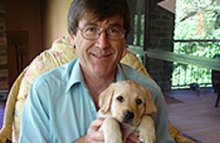
The English physicist, writer and broadcaster Paul Davies (1946-) did so in the following manner:
“I look forward to a time when the biologists stop berating physicists for abandoning reductionism. At the moment, the biologists are strongly and evangelically reductionistic, and any suggestion by physicists that one can deviate from the path of strict reductionism tends to evoke a rap over the knuckles from the biologists.”
It doesn’t help here that most of the users of the word “reductionism” deploy it as a plain and simple term of abuse. (The American biologist E.O. Wilson once wrote that the “very word ‘reductionism [has a] sterile and invasive ring, like a scalpel or catheter”.) This is ironic. That’s primarily because even the physicists who’re philosophically literate (such as Stephen Weinberg and Murray Gell-Mann) have been keen to stress the following:
Even though physics has indeed been built upon reductionism, physicists themselves can, at the very same time, accept the (relative) autonomy of other scientific disciplines, complexity and even certain types of emergence.
[See Steven Weinberg’s book Facing Up: Science and Its Adversaries and Murray Gell-Mann’s The Quark and the Jaguar.]
In any case, Paul Davies argued that it is biologists who’re the true reductionists, not (as Varela stated above) physicists.
And here Davies took a clear potshot at biologists:
“My personal belief is that biologists tend to be uncompromising and reductionistic because they’re still feeling somewhat insecure with their basic dogma, whereas physicists have three hundred years of secure foundation for their subject, so they can afford to be a bit more freewheeling in their speculation about these complex systems.”
If Francisco Verela, Christopher G. Langton and many other biologists (as well as sociologists, philosophers, religious people, journalists, etc.) accuse physicists of being reductionists, and the physicist Paul Davies, in turn, accuses biologists of being reductionists, then perhaps that simply shows us that this hissing ist-word no longer does much work — at least when used by most people.
Lynn Margulis vs Palaeontologists and Fellow Biologists
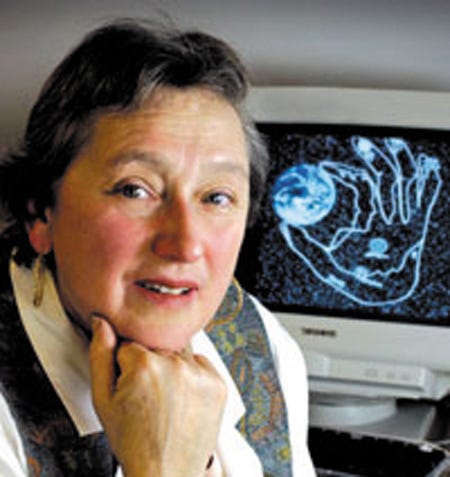
In my last essay (‘Scientists at War With Scientists: Insults, Politics, and Darwinism’), the American biologist Lynn Margulis (1938–2011) was quoted mounting a personal attack on Richard Dawkins. (Dawkins returned the favour.) In this instance, however, Margulis merges criticisms of scientists with criticisms of their disciplines.
Firstly, Margulis had strong words to say about the palaeontologists Niles Eldredge and Stephen Jay Gould:
“Eldredge and Gould and their many colleagues tend to codify and incredible ignorance of where the real action is in evolution [].”
This is a little embarrassing and, well, (almost) juvenile. It’s also a clear display of Margulis’s ego.
More broadly, Margulis’s words display the fact that many scientists who choose a particular discipline often believe that it’s extra-special precisely because they’ve chosen it. Of course, they often rationalise why they believe their own discipline is extra-special. And Margulis does so too.
In the following passage, for example, Margulis offers us some very snooty words against those fellow scientists who just don’t happen to be in the same discipline she’s in; and, therefore, who don’t share her own theories and her own interests.
Margulis stated:
“John Maynard Smith, an engineer by training, knows much of his biology secondhand. He seldom deals with live organisms. He computes and he reads. I suspect that it’s very hard for him to have insight into any group of organisms when he does not deal with them directly. Biologists, especially, need direct sensory communication with the live beings they study and about which they write.”
According to Margulis’s reasoning, then, it would be impossible for anyone outside her own discipline to say anything true — or even worthwhile — about “organisms” or “live beings”. After all, few such people will have had “direct sensory communication” with the organisms Margulis had in mind.
So, in this instance, Margulis was convinced that the scientific discipline she just happened to have chosen is “where the real action is”. Yet surely she believed that simply because she’d already immersed herself in her own discipline and interests for her entire career. Thus, Lynn Margulis took her little scientific bubble to be very special and not a bubble at all.
Stuart Kauffman and Daniel Hillis on Physics and Biology
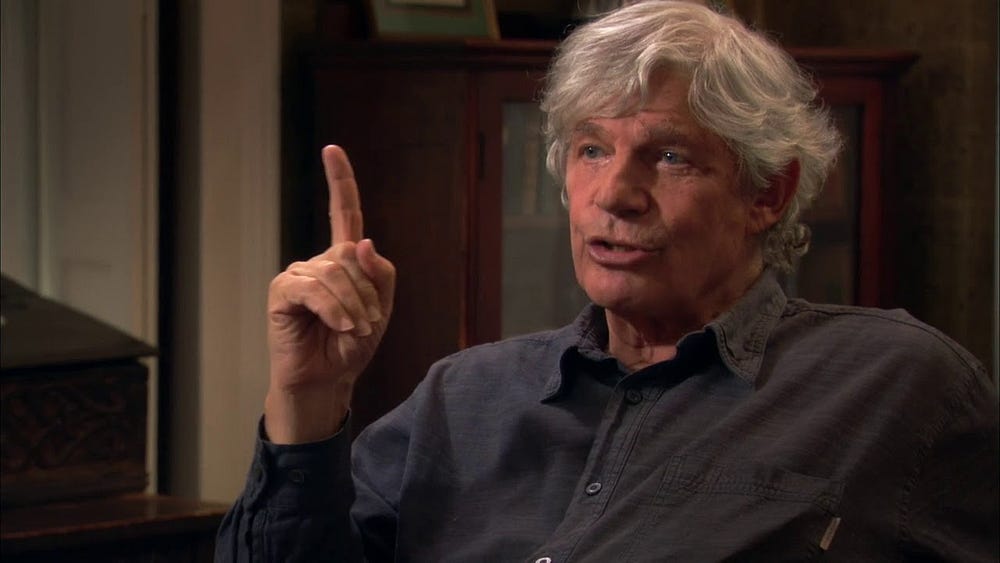
The American biologist Stuart Kauffman (1939-) claimed that physics is
“concept-driven and theory-driven, biology is essentially experimental and grungy-fact-driven”.
He went on to say that, unlike in physics, in biology the
“standard view is that there are no deep theories of the deep meaning of ad-hoc contraption”.
What’s more, “notions of underlying deep principles are [] just considered foolish”.
The first clause from Kauffman is odd. It would have been more acceptable if he had said that theoretical physics is “[c]oncept-driven and theory-driven”. But he didn’t. He obviously hadn’t heard physicists stress the vital importance experiments, tests, observations, data, etc… Well, of course he must have done! So it’s possible that Kauffmann might have meant that despite the multitude of experiments, tests, observations, etc. found in physics, it is still concept-driven and theory-driven. And there would have been an element of truth to that.
In any case, there’s also an argument that even biology (not what’s now classed as theoretical biology) is girded by — and reliant upon — concepts and theories. It’s just that these underlying theories and concepts aren’t usually acknowledged. Indeed it’s hard for any scientific discipline not to be theory-driven and concept-driven to varying degrees.
What’s more, has any physicist ever claimed that biology too should have “deep theories” and “deep principles”? (Perhaps they have.) Of course physicists have demanded such things from physics. But why did Kauffman basically argue that physicists conflate two different disciplines here? Was it because some physicists have actually done so?
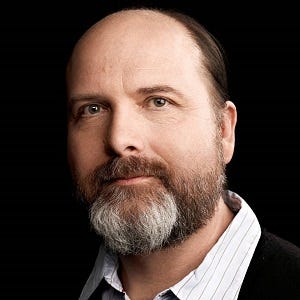
The inventor and computer scientist Daniel Hillis (1956-) seemed to back up Stuart Kauffman’s position in the following passage:
“The theory is almost the real stuff, and the experiments are just an approximation to test the theory [] The theory is the thing of perfection [] When Eddington went off during a solar eclipse to measure the bending of starlight by the sun and thus to test Einstein’s general-relativity theory, somebody asked Einstein what he would think if Eddington’s measurements to support his theory, and Einstein’s comment was, ‘Then I would have felt sorry for the dear Lord. The theory is correct.”
This is clearly about Einstein’s theoretical physics. Yet even here it’s often been said that the stress on Einstein’s “pure thought” has been exaggerated by many commentators. (Other commentators have expressed the exact opposite view.) So although it can be said that Einstein didn’t partake in experiments himself, he did note and depend upon those previous physicists who did.
So what about biology?
Hillis continued:
“In biology, however, this is reversed. The experimental is on top, and the theory is considered poor stuff.”
That quoted, Hillis, unlike Kauffman earlier, was simply noting the main scientific (as well as philosophical) differences (whether accurately or not) between physics and biology…
But do we really need all the potshots and tribal point-scoring on top of that too?











No comments:
Post a Comment